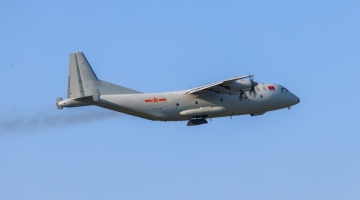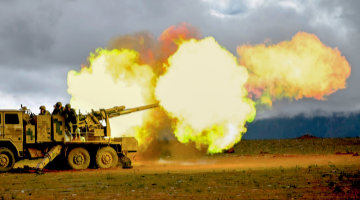By Xie Binbin
Since the beginning of this year, the US has launched trade wars on a global scale, severely disrupting the global economic and trade order. Recently, it has interfered directly with military force in the Iran-Israel conflict, pushing the regional situation to the brink of a hot war. The US has long since abandoned rules and morality—brutally trampling the purposes and principles of the United Nations Charter and international law, wantonly destroying the post-war international order, the global free trade system, and the international nuclear non-proliferation regime, and tyrannically violating other countries' sovereignty, security, territorial integrity, and development rights. The world is being dragged into a dangerous jungle by a hegemonic power obsessed with unilateralism and power politics.
Both trade wars and military strikes against Iran represent manifestations of "America First" driven by the will and interests of the US. Bloomberg reported that the US' direct intervention in the Iran-Israel conflict has heightened geopolitical risks, while the global economy already faces severe uncertainty due to the trade war it initiated. Stephen Roach, a senior fellow at Yale University, wrote that the outbreak of a new war in the Middle East, together with a destructive tariff war, makes for a lethal combination in a sluggish world economy. More dangerously, the US has repeatedly crossed red lines, severely undermining the law-based and rules-based international order as well as the international community's pursuit of multilateralism.
Although some in the US are touting the so-called triumph of hegemony, they fail to realize that these dangerous and overbearing practices have further tarnished the reputation and image of the US. The US Foreign Policy magazine published an article stating that the world has grown disgusted with the unilateral imperialist behavior of the US. Recent polling results have also corroborated this view. US media, citing survey results from Morning Consult, reported that respondents from 41 countries rated their favorability toward the US at negative 1.5 points as of the end of May this year, down from over 20 points when the Trump administration took office in January this year. Morning Consult's report noted that beyond tariff policies, the US' cuts to foreign aid and withdrawal from international organizations and agreements will cause long-term damage to its image.
Global dissatisfaction with the US' hegemonic conduct has deep historical roots, while recent unilateral actions have accelerated the collapse of its reputation. For a long time, the US has positioned itself as a world leader, yet rather than demonstrating the responsibility and commitment befitting a great power, it has leveraged its hegemony to construct a unipolar world centered on its own interests. Interfering in other countries' internal affairs, launching wars, forming cliques and stoking confrontation, wielding the stick of sanctions and pursuing "decoupling and chain-breaking"—such hegemonic behaviors have increasingly revealed to the world its selfishness and hypocrisy. Anxious about its declining hegemony, the US now appears more like a cornered beast making its final struggle by engaging in tariff extortion, threatening to annex other countries' territories, and arbitrarily launching military attacks against other nations. Spain's Rebelión website published an article pointing out that the US' decline cannot be salvaged—it resembles a wounded beast that will use every possible means to protect itself and maintain its hegemony.
In today's world, the multipolarization process is accelerating, and profound changes are occurring in the international balance of power and popular sentiment. Power and tyranny cannot prevent the decline of US hegemony; they will only meet with increasingly strong condemnation and resistance from the international community.













